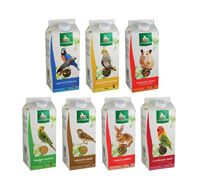Over the past few years, Wink has invested steadily in expanding production capacity and improving efficiency, resulting, the company claims, in Wink’s flexible dies becoming the benchmark in terms of quality and delivery times. And now further investments have now been approved in order to meet continuously rising demand from around the world.
A large part of these investments relate to ecological matters, ensuring that production processes are as ‘clean’ as possible. By using state-of-the-art filtering and recycling techniques, for instance, Wink uses lower quantities of chemicals more efficiently, especially for etching steel plates. And, as most processes run in closed loops, waste is minimised.
Another example is the installation of solar panels to produce eco-friendly electricity.
Expanding flexible die production
Last year, Wink expanded its production area by some 1 400m2 and invested heavily in new machinery to meet growing demand for die-cutting tools. At the same time, workflow was optimised to allow the increasingly efficient production of high-quality tools.
Among the most important measures were the installation of an automatic coating machine for flexible dies; new engraving machines with high-precision control; a new etching machine; refurbishing of existing engraving machinery; expansion of the packaging/final quality control department; new offices for sales and CAD-CAM departments; and the installation of a photovoltaic system.
‘We’ve always produced to the highest quality levels,’ explains MD, Alan de Natris. ‘But last year’s expansion enabled us to meet the increasingly stringent requirements of our international markets.’
Wink’s magnetic flexible dies are made from high quality steel using state-of-the-art CNC technology for milling and sharpening. Wink guarantees minimum tolerances, maximum durability and optimum cost-effectiveness.
Wink’s SuperCut flexible dies – available with several finishes and coatings to maximise die-cutting efficiency – significantly exceed these standard requirements, with tolerances of only 2µm.
New coating technologies
And now the company has moved yet another step forward. Complementing its already wide range of flexible die finishes, Wink now offers an MCR (MicroChrome) coating.
Die-cutting labels is very demanding with several factors influencing the choice of tooling. While some applications can be run with a standard, uncoated flexible die, most need a special hardening of the tool to guarantee efficient processing.
For processing long runs of abrasive materials and inks (thermal paper, opaque white), for instance, the new MCR coating combined with laser hardening offers a considerably prolonged life. The MCR coating – specially-developed hard chrome composite applied to the tool surface by galvanic means – protects the cutting edges from wear. This means that coating does not impair tolerances, flexibility and magnetic adhesion.
Over the years, the company has developed several surface treatments and finishes, each suited to different applications and customer demands.
Laser hardening is generally recommended for cutting-through as well as for large quantities of difficult-to-cut filmic materials. Wink’s established MC coating offers good protection against wear when kiss-cutting abrasive (thermal) materials but this is now exceeded by the MCR coating.
Additionally, Wink offers four non-stick coatings that represent the optimum solution for converters in combating ink and adhesive residues. The non-stick coating minimises these residues on the cutting edges and on the surface of the die, ensuring an undisturbed production process.
[Ed’s note: Rotocon’s new website is now live … visit it at www.rotocon.co.za.]









![02 CAE 20th Anniversary [2018] ED](https://www.packagingmag.co.za/wp-content/uploads/2024/11/thumbs/epic-120x86/02_CAE-20th-Anniversary-2018-ED-120x86.jpg)